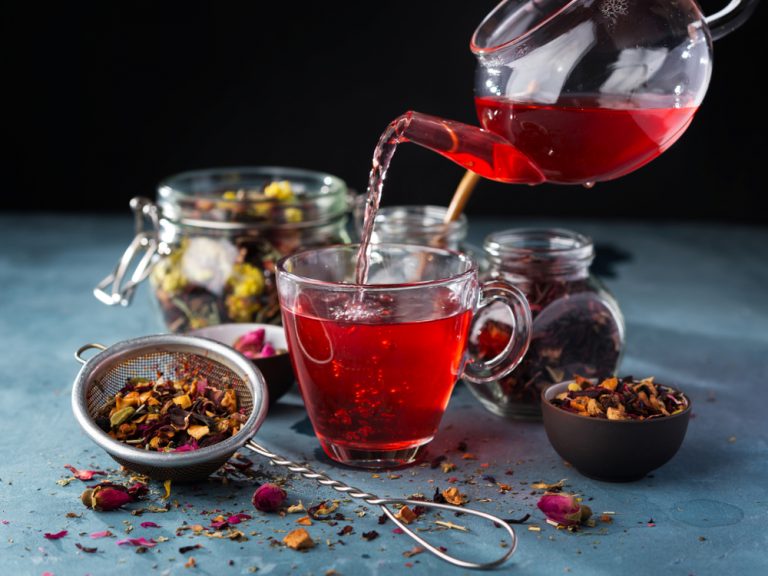Known in China since 1700 BC. Interestingly, in the Tang Dynasty (618-907) red tea could only be consumed by the Emperor. It was produced in caves in small quantities, forbidding even ordinary mortals to taste the emperor's drink.
How is this tea rarity obtained?
The unique aroma is obtained by partial fermentation and thanks to this the edges of the leaves gradually turn red. It matures over time. The most expensive red tea varieties achieve their properties even after 60 years! It is important to maintain proper conditions for drying and maturing the leaves in dark, humid rooms.
The tea production process was developed as early as 2000 years ago and the principles of the unique recipe have been strictly observed to this day. Thanks to this, we can consume a drink rich in various compounds which are unusual for our health.
Red tea ingredients
The leaves of the Oingmao tree contain numerous substances with surprising effects on the human body
Alkaloids
Including caffeine, which stimulates mental processes and improves well-being. Theine contained in red tea is absorbed more slowly than in coffee and therefore has a prolonged effect.
Flavonoids
They have a wide spectrum of effects and show diuretic effects, improve digestive processes and have a beneficial effect on the skin.
Tannins
Exceptional anti-inflammatory and anti-diarrhoeal substance. Act also as antiseptic and anti-hemorrhagic agents.
Amino acids
They form the structure of proteins, which are necessary for the proper functioning of the organism, not all organisms are able to synthesise them fully on their own, so it is necessary to provide them with food.
Calcium
It guarantees the good condition of bones and teeth, participates in blood clotting processes and ensures proper functioning of muscles, including the heart muscle.
Magnesium
It strengthens cognitive processes, concentration, eliminates painful calf cramps, has a calming effect, its deficiency manifests itself in insomnia, painful menstruation, irritation, nausea.
Iron
It is found in many important proteins, such as haemoglobin, and is also the active centre of numerous enzymes that take part in the processes that condition human life. The demand for iron is increasing during monthly bleeding in women and during pregnancy.
Selenium
It forms a strong antioxidant in the body, protecting red blood cells and cell membranes from the harmful effects of free radicals.
Vitamin E
It is called the vitamin of youth, especially recommended for women during the menopause.
Red tea impact on our organism
The main effect of red tea described is to intensify digestive processes, therefore it is especially recommended as an addition to the diet of people who fight overweight. The loss of excess weight while drinking Pu-Erh tea is caused by accelerated, more efficient fat burning, mainly due to the current high amount of flavonoids.
However, we should not forget about other important properties of red tea leaves:
- protects teeth from dental caries
- speeds up alcohol metabolism
- It cleanses the body while stimulating mental functions
- it has been proven that tea effectively reduces the level of bad LDL cholesterol, which is also associated with the reduction of fat tissue and the sweeping of free radicals thanks to its antioxidant properties, which allows for the effective elimination of toxins from the body
- if you are fighting hypertension, I also have good news for you! It has been proven that blood pressure is normalised with regular consumption of red tea
Species of red tea
Oolong
It comes from Taiwan, has a golden or dark brown colour (depending on the time of brewing), a bouquet of different flavours and an intense aroma.
Jade Oolong
Tea is obtained in southern Taiwan, a tea with a golden colour, floral scent and a pleasant taste.
Pu-Erh
Produced in China, fermented in approximately 70% for three months.
Rooibos
It originates from the plant Aspalathus linearis - a red bush which is also included in the group of red teas. The leaves of the red bush are ripened, dried and then cut into smaller pieces.






